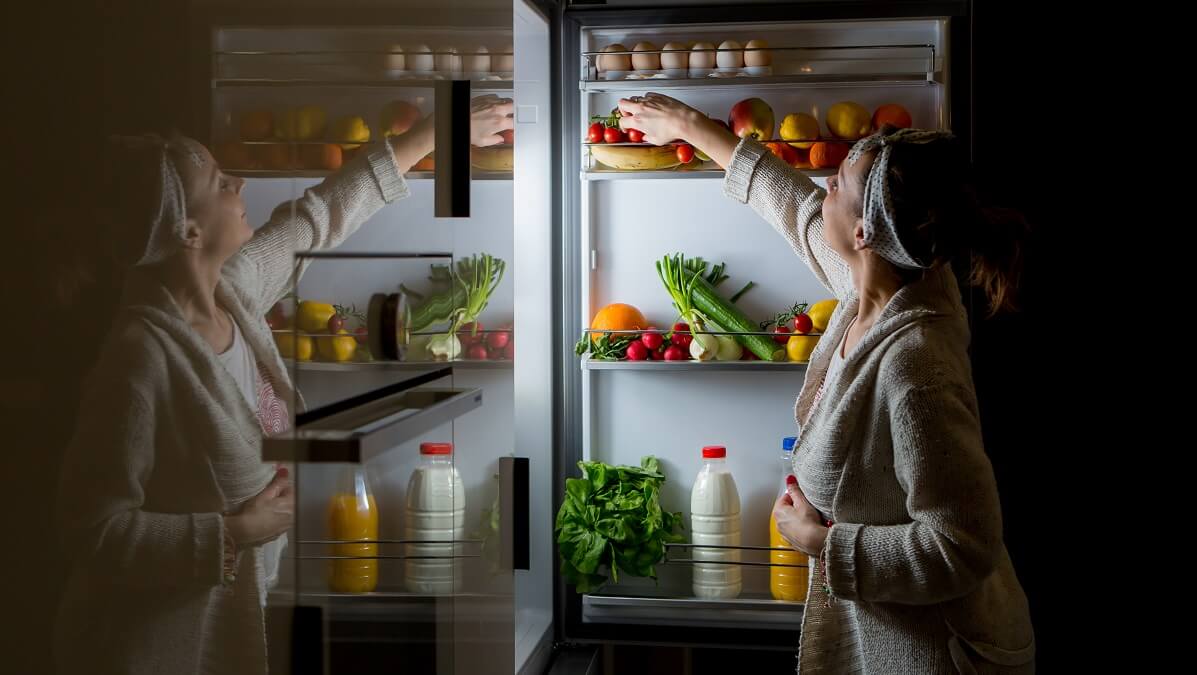If you’re trying to lose weight, you’ve probably been told not to snack late at night before bed. But why is eating late so bad for weight loss? Why does it matter what time you eat at all?
Around 67 per cent of Australian adults could be classed as ‘overweight’ or ‘obese’ and the problem is only growing. As a result, many of us are trying to shed a few (or more) kilos, and cutting out late eating is one way to get your weight down.
It’s fairly standard advice that gets repeated everywhere, but there have been few comprehensive studies into the exact mechanisms at play that make late-night snacking such a bad idea if you’re trying to lose weight – until now.
In a study published in the journal Cell Metabolism, researchers at the Brigham and Women’s Hospital in Boston investigated the impact of eating later on three central parts of the weight loss process: regulation of calorie intake, number of calories burned and molecular changes in your fat tissue.
Read: Does coffee help you lose weight?
“We wanted to test the mechanisms that may explain why late eating increases obesity risk,” says Dr Frank Scheer, senior author of the study.
“Previous research by us and others had shown that late eating is associated with increased obesity risk, increased body fat, and impaired weight loss success. We wanted to understand why.”
They found eating late at night causes decreased energy expenditure, increased hunger and changes to fat cells that increase the risk of obesity.
The researchers studied 16 patients with a body mass index (BMI) in the overweight or obese category, split into two groups. Both groups were given identical meal plans, but one group was to eat their meals four hours later than the first group.
Read: Can you be overweight and healthy?
Participants regularly documented their hunger and appetite, provided frequent small blood samples throughout the day, and had their body temperature and energy expenditure measured.
Results revealed that eating later had a profound effect on hunger and, in particular, the appetite-regulating hormones leptin and ghrelin, which influence your drive to eat.
Specifically, levels of leptin, which signals ‘fullness’ in your stomach, were lower in the late group compared to those who ate earlier.
Read: Eating chocolate for breakfast could lead to weight loss: study
The late eaters also burned calories at a slower rate and exhibited changes to fat tissue genes that promote increased fat growth.
“This study shows the impact of late versus early eating,” says Dr Scheer.
“Here, we isolated these effects by controlling for confounding variables like caloric intake, physical activity, sleep, and light exposure, but in real life, many of these factors may themselves be influenced by meal timing.”
What time do you eat dinner each night? Do you continue to snack after that? Let us know in the comments section below.

